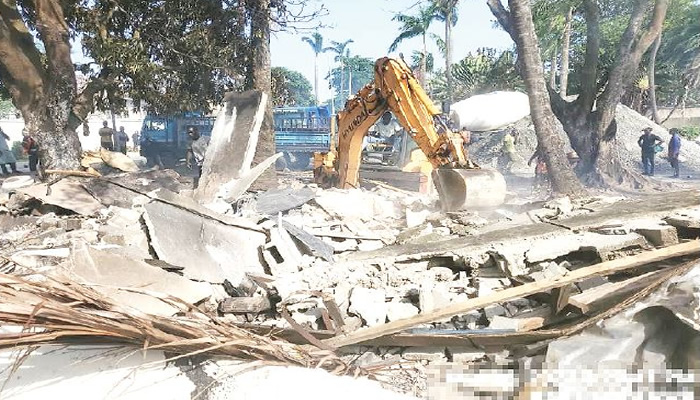In a year fraught with upheaval, Nigeria’s real estate sector found itself at a crossroads, grappling with a cocktail of challenges that sent shockwaves through the nation.
From the bulldozers flattening homes and businesses to soaring inflation gutting the purchasing power of millions, 2024 painted a grim picture for the industry that once stood as a pillar of economic resilience. Developers, investors, and everyday Nigerians felt the pinch as the dream of affordable housing seemed to drift even further out of reach.
The crisis began with a wave of demolitions that swept across the country, leaving devastation in its wake. Urban planning enforcement and ambitious government projects like the Lagos-Calabar Coastal Highway displaced countless families and businesses. In Lagos alone, entire communities were razed in Ojota, Lekki, and Alaba. Similar stories echoed across Anambra, Enugu, Kano, and other states, as bulldozers moved in, often with little warning. While some demolitions were justified to address illegal constructions, others seemed politically motivated, fueling resentment among those affected. Victims criticized not only the government’s heavy-handed approach but also its failure to prevent such structures from being erected in the first place.
Compounding the chaos was Nigeria’s unrelenting inflation, which surged to a staggering 33.88% by October 2024, its highest level in decades. The rising cost of living drained household budgets and sent prices for essential building materials through the roof. Cement, a cornerstone of construction, saw its price skyrocket from N5,000 to N13,000 per bag, despite promises from manufacturers to lower costs. Developers balked at proposed price caps of N7,000–N8,000 per bag, arguing that such measures were unsustainable and would only exacerbate the country’s 28-million-unit housing deficit. Critics called out cement giants like BUA for failing to deliver on earlier pledges to slash prices to N3,500, leaving many questioning whether these promises were ever realistic.

The ripple effects of these pressures were profound. Construction projects stalled as developers struggled to absorb ballooning costs. Property prices soared, placing home ownership out of reach for much of the population.
Related Posts:
- Experts Highlight Challenges and Opportunities in…
- Housing Sector Weathers 2024 Storms, Eyes a…
- Real Estate: Nigeria Trails Behind as Botswana and…
- Rental Properties to Dominate Nigeria's Real Estate…
- NIGERIA @64: PRIVATE SECTOR SHOULD BE EMPOWERED TO…
- Nigeria's Housing Crisis: A 21-Million-Unit Deficit…
The housing deficit widened, leaving millions stranded without access to affordable options. Industry experts warned that if the crisis continued unchecked, the consequences would be dire, with rent hikes, abandoned projects, and a real estate market teetering on the brink of collapse.
Despite its significant contribution of N11 trillion to Nigeria’s GDP, the real estate sector’s growth remained sluggish throughout 2024, with quarterly rates lagging behind national averages. Reports highlighted a troubling mismatch between demand and supply, fueled by rapid urbanization and the absence of unified housing policies.
Regulatory bottlenecks, high-interest rates, and limited access to land added to the sector’s woes. Meanwhile, the push for affordable housing remained largely rhetorical, as policymakers failed to address the structural barriers preventing real progress.
The year also saw a grim continuation of Nigeria’s building collapse epidemic, with 627 reported incidents since 1974 claiming over 1,500 lives. Poor regulatory enforcement, substandard materials, and a lack of accountability were cited as key factors in these preventable tragedies. One of the most harrowing incidents occurred in Ibadan in late October, where 10 lives were lost in yet another catastrophic collapse.
Industry leaders and stakeholders called for urgent reforms to stabilize the sector and prevent further decline. Proposals ranged from incentivizing local developers with low-interest loans to reducing reliance on imported materials by promoting alternatives like bamboo and interlocking blocks. Experts also urged the government to prioritize budget allocations for housing, address land title delays, and implement policies that would make mortgages accessible to both formal and informal workers.
As the year drew to a close, the real estate sector stood at a precarious juncture. While the challenges of 2024 underscored the sector’s vulnerabilities, they also illuminated opportunities for transformative change. Whether Nigeria seizes these opportunities or lets them slip away will determine the trajectory of the housing market—and the lives of millions in the years to come.



